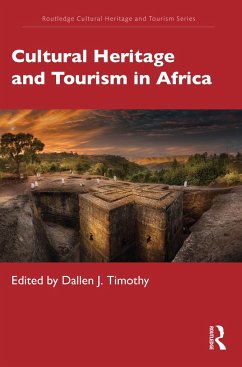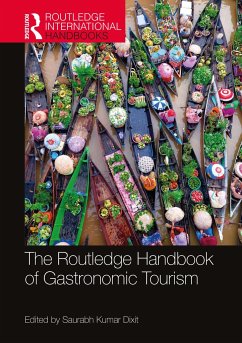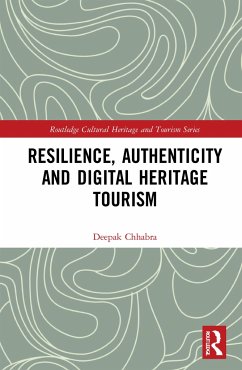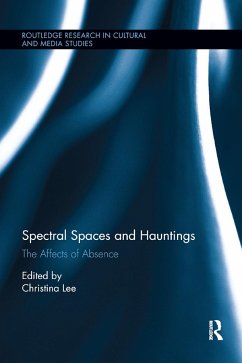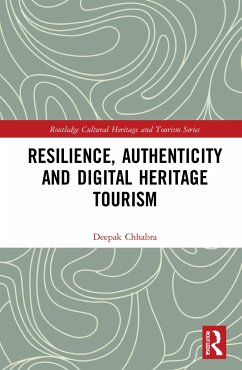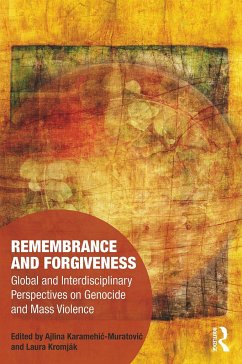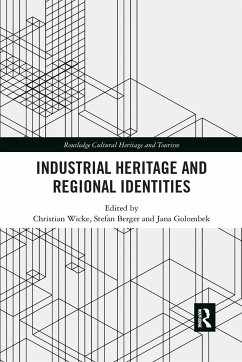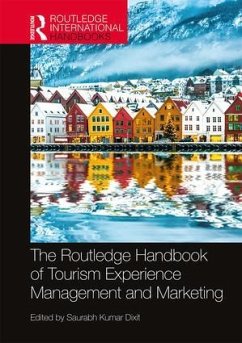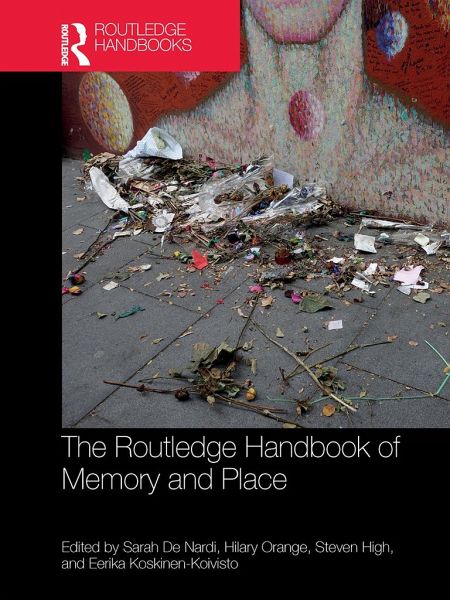
The Routledge Handbook of Memory and Place
Versandkostenfrei!
Versandfertig in 6-10 Tagen
50,99 €
inkl. MwSt.

PAYBACK Punkte
25 °P sammeln!
This Handbook explores the latest cross-disciplinary research on the inter-relationship between memory studies, place, and identity.In the works of dynamic memory, there is room for multiple stories, versions of the past and place understandings, and often resistance to mainstream narratives. Places may live on long after their physical destruction. This collection provides insights into the significant and diverse role memory plays in our understanding of the world around us, in a variety of spaces and temporalities, and through a variety of disciplinary and professional lenses. Many of the c...
This Handbook explores the latest cross-disciplinary research on the inter-relationship between memory studies, place, and identity.
In the works of dynamic memory, there is room for multiple stories, versions of the past and place understandings, and often resistance to mainstream narratives. Places may live on long after their physical destruction. This collection provides insights into the significant and diverse role memory plays in our understanding of the world around us, in a variety of spaces and temporalities, and through a variety of disciplinary and professional lenses. Many of the chapters in this Handbook explore place-making, its significance in everyday lives, and its loss. Processes of displacement, where people's place attachments are violently torn asunder, are also considered. Ranging from oral history to forensic anthropology, from folklore studies to cultural geographies and beyond, the chapters in this Handbook reveal multiple and often unexpected facets of the fascinating relationship between place and memory, from the individual to the collective.
This is a multi- and intra-disciplinary collection of the latest, most influential approaches to the interwoven and dynamic issues of place and memory. It will be of great use to researchers and academics working across Geography, Tourism, Heritage, Anthropology, Memory Studies, and Archaeology.
In the works of dynamic memory, there is room for multiple stories, versions of the past and place understandings, and often resistance to mainstream narratives. Places may live on long after their physical destruction. This collection provides insights into the significant and diverse role memory plays in our understanding of the world around us, in a variety of spaces and temporalities, and through a variety of disciplinary and professional lenses. Many of the chapters in this Handbook explore place-making, its significance in everyday lives, and its loss. Processes of displacement, where people's place attachments are violently torn asunder, are also considered. Ranging from oral history to forensic anthropology, from folklore studies to cultural geographies and beyond, the chapters in this Handbook reveal multiple and often unexpected facets of the fascinating relationship between place and memory, from the individual to the collective.
This is a multi- and intra-disciplinary collection of the latest, most influential approaches to the interwoven and dynamic issues of place and memory. It will be of great use to researchers and academics working across Geography, Tourism, Heritage, Anthropology, Memory Studies, and Archaeology.





